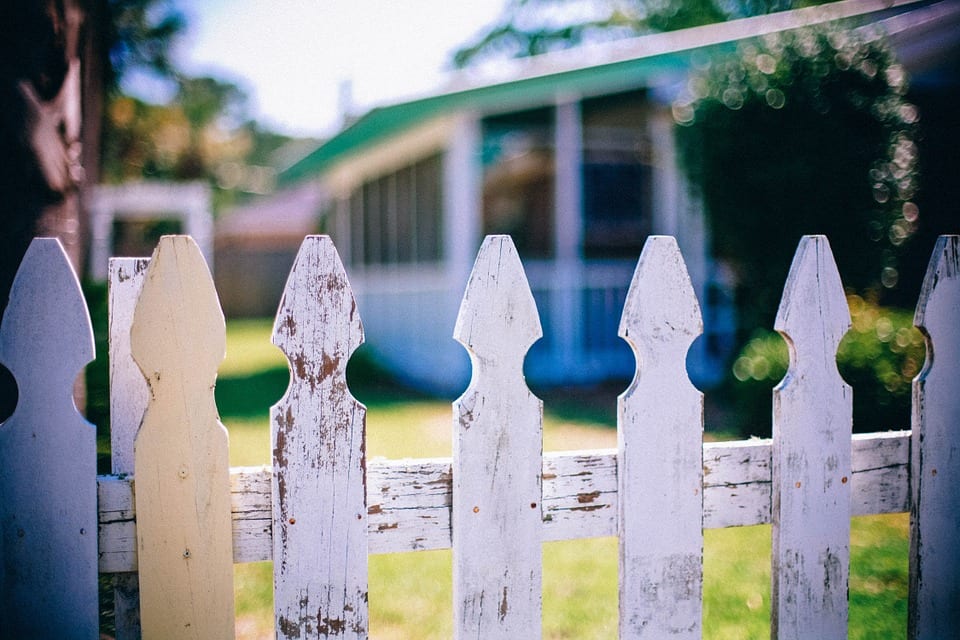I was recently in a meeting with few of our members of the church asking the question of, “How are we known in our community?”
In the book, “The Neighboring Church” by Rich Rusaw[1]ask this fundamental question that churches have been too scared to ask; and the question is this.
I asked that daunting question, if my church were to cease to exist today, would anyone notice we were gone? Would anyone even care to know, or even notice that the church is gone as the body of Christ has been so active in the community loving Jesus?
I took this a step further; if my church ceased to exist today, would the community be impacted by its lack of presence for we loved our neighbors so well?
But the real question at the end of the day is not out there, but it is within ourselves. If I were to cease to exist from the community, would my neighbors notice that I and my family weren’t there anymore?
This is a hard-diagnostic question to ask, as it’s easy for myself to control of my own personal perception of impression I leave, but I cannot necessarily control about how others in the community see myself.

How Do I Know If I’m a Loving Neighbor?
There is an ancient list called, “Corporal Works of Mercy”
-
1. Feed the Hungry
-
2. Shelter the Homeless
-
3. Clothe the Naked
-
4. Visit the Sick
-
5. Visit those in Prison
I may have lost some of my readers here as you are rolled your eyes or looked away for a moment. Perhaps you’re thinking, “Deeds, deeds, deeds” or “Works, works, works.”
There are two typical responses from two different camps in an evangelical circle; Ligon Duncan spoke of these two at T4G 2018 in Louisville, KY.
1. Legalism = (Pharisaical, response to Moralistic Therapeutic Deism) = “knit picker” overvalue the law
2. Anti-Nomionism (Negative pronoun, nomos = law) = “grace guys” overvalue grace
Many have confused the relationship between the law and grace and the gospel and obedience. Some churches went to the extreme and say laws are bad, therefore, imperatives and commands are not of the grace of the gospel.
Ultimately, neither understands the character of God as our loving and gracious heavenly Father.
The Second Greatest Commandment: Luke 10:25-37
Jesus speaks of the account where he responds to the lawyer’s question, “What should I do to inherit the kingdom of God?” (v 25. Luke has an interesting idea of salvation.
Jesus’ response vs. Paul’s response?
- Book of Acts, “Now when they heard this they were cut to the heart, and said to Peter and the rest of the apostles, “Brothers, what shall we do?” (Acts 2:37)
- Philippians Jailer: “Sir, what must I do to be saved?” (Acts 16:30)
- Paul says, “Belief in the Lord Jesus Christ, and you will be saved!” (Acts 16:31)
How does one know they are saved? Jesus responds in an interesting way,
- “Love the Lord your God with all your heart… .etc.” The Scribe to justify themselves says, “Who is my neighbor?” We don’t connect this story back to the question
Then following the famous story of the Parable of the Good Samaritan (vv. 30-37). Then we find the story of Martha & Mary (vv. 38-42).
What do we understand here? Often, this story is taught as the busy Christian vs. the contemplative Christian. That is how we usually understand; however, it is much more than that.
The outline of Luke 10:25-42 is a chiastic structure (a literary technique in narrative motif).

a. Love the Lord your God (vv. 25-27).
b. Love your neighbor as yourself (vv. 27-28).
b. Good Samaritan Story (vv. 29-37).
a. Mary & Martha (vv. 38-42).
Why did Jesus put the story here? How does that look like to love Jesus with all our heart, soul, mind and strength? It’s one being at the feet of Jesus.
The Works of Loving Your Neighbor.
The list of deeds that we saw, Jesus himself spoke in his own words in Matthew 25:34-40.
“When the Son of Man comes in his glory, and all the angels with him, then he will sit on his glorious throne. Before he will be gathered all the nations, and he will separate people one from another as a shepherd separates the sheep from the goats. And he will place the sheep on his right, but the goats on the left. Then the King will say to those on his right,
‘Come, you who are blessed by my Father, inherit the kingdom prepared for you from the foundation of the world.
For I was hungry and you gave me food, I was thirsty and you gave me drink, (1. Feed the Hungry)
I was a stranger and you welcomed me, (2. Shelter the Homeless)
I was naked and you clothed me, (3. Clothe the Naked)
I was sick and you visited me, (4. Visit the Sick)
I was in prison and you came to me.’ (5. Visit those in Prison)
Then the righteous will answer him, saying, ‘Lord, when did we see you hungry and feed you, or thirsty and give you drink? And when did we see you a stranger and welcome you, or naked and clothe you? And when did we see you sick or in prison and visit you?’ And the King will answer them, ‘Truly, I say to you, as you did it to one of the least of these my brothers, you did it to me.’ (Matthew 25:34-40)
I can only imagine as Jesus spoke these words, it would have been one of that awkward moment for the speaker is talking about something touchy subject as the audience couldn’t handle it. That’s is that moment as Jesus spoke on the topic of end times.
Churches have been enculturated and indoctrinated by the surrounding context. For the longest time, churches have found excuses for ignoring the second commandment. Christians been culturally conditioned and been blinded not to see certain things that are blatantly obvious in scripture.

What Will You Be Known for in the Community?
As much as I love theology, at the end of the day, I pray that I will be known as a person of Compassion. This compassion made Jesus radical in every way to the point that people murdered him.
“Well, that’s the social gospel movement. Those are handled by the politician in government. That’s only dealt with the progressive and the liberals who don’t know about theology.” This isn’t about the social gospel issue.
Christians have done well excusing ourselves for the longest time of putting off, “loving your neighbor” who look different and talk different and place them on the fringes of society.
Too often, Christians have refused to treat LGBT people as their neighbors and have been content to remain ignorant about what they really feel and believe in. Typical Christian tactics such as organizing boycotts, letter-writing, and shunning even different political parties. As believers, this must become a thing of the past.
Loving your neighbor is so much more than a social issue, it is a gospel issue.
Loving your enemy is so much more than a political issue, it is a soteriological issue.
Loving one another is so much more than a horizontal issue, it is a vertical issue.
We choose the ease over the beauty of diversity in our churches. It’s just easy to be with my people. “I feel like I can get more stuff done.” So, we drift towards homogeny.
The Gospel of Jesus Christ by grace through faith in Christ alone is empowering the people of God of any color, any race, any background, any creed, any socio-economic status, with the Spirit of God by be wielding the Word of God for the ministry of God and for the glory of God to change the world.
Just look around your dinner table; Who do you have there? That reveals whether or not you are truly living out what it means to love your neighbor well.
If you want to be distinct, go love someone who disdains you.
If you want to be extraordinary, go serve someone who discourages you.
If you want to be radical, go pray with someone who despises you.
[1]Brian Mavis and Rick Rusaw, The Neighboring Church: Getting Better at What Jesus Says Matters Most(Nashville, TN: Thomas Nelson, 2016).

